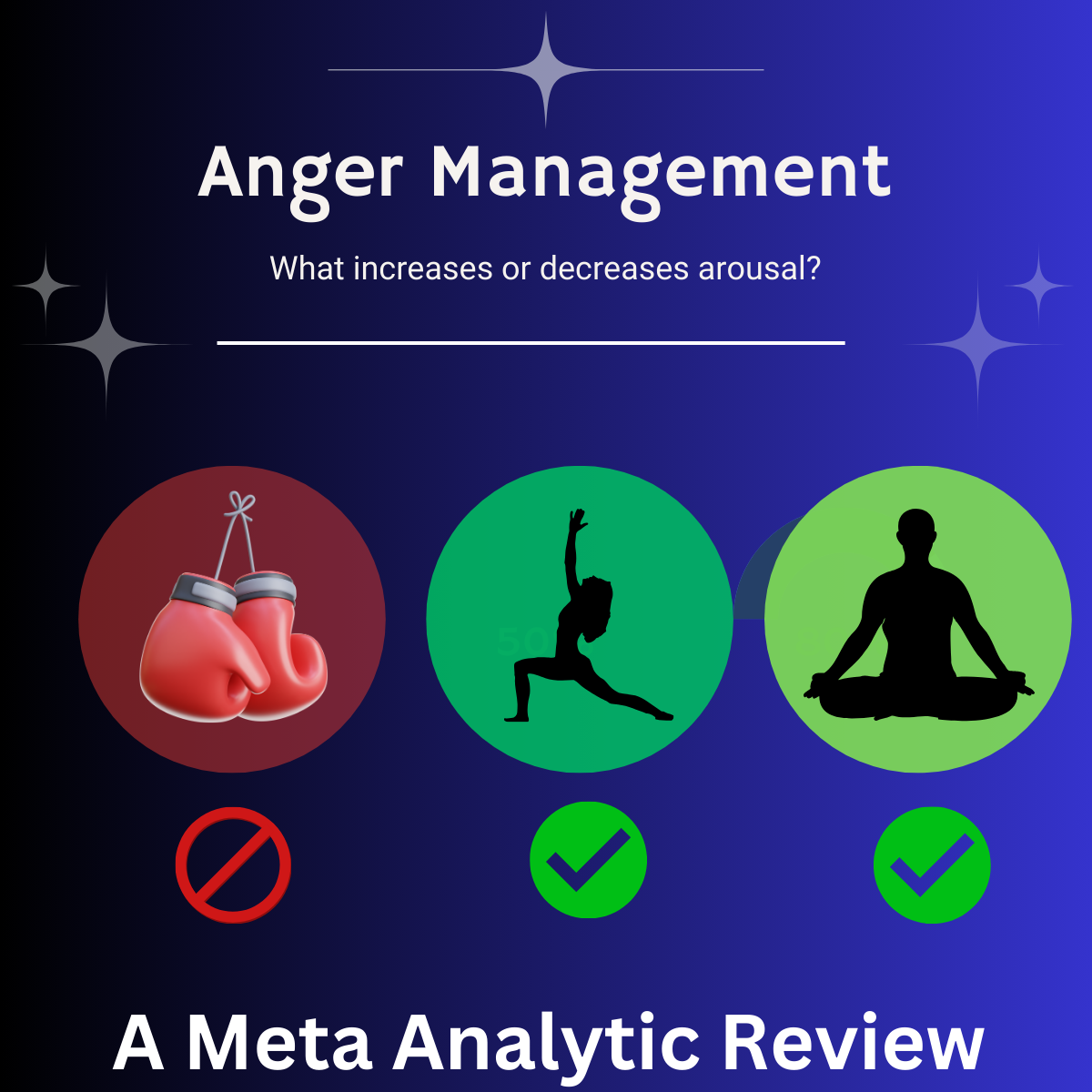The Power of Calming Techniques
For years, many of us have believed that releasing anger through physical activities like boxing, running, or other "venting" strategies was the best way to manage intense emotions. The idea was simple: "let off steam" and the anger would dissipate. But research shows that this approach may not be as effective as once thought. In fact, activities that increase physiological arousal can sometimes worsen anger and aggression, leaving us feeling more keyed up rather than calm.
So, what truly works when managing anger? The answer lies in techniques that reduce physiological arousal, allowing our bodies and minds to enter a calmer state.
How Calming Techniques Help Manage Anger
Physiological activities like relaxation and stress-reduction exercises are designed to counteract the heightened arousal that accompanies anger. These include:
- Deep Breathing: Controlled, slow breathing to lower your heart rate and calm your mind.
- Progressive Muscle Relaxation: Tensing and releasing muscles to ease physical tension.
- Yoga and Meditation: Practices that focus on mindfulness and being present in the moment.
- Biofeedback: Using technology to monitor and regulate your body's stress responses.
These methods work by engaging your parasympathetic nervous system, often called the "rest and digest" system. This system is responsible for promoting relaxation and reducing the heightened arousal associated with anger. By slowing your heart rate, relaxing tense muscles, and easing your breathing, these techniques can help you shift from a state of intense anger to one of calm and balance.
Why Calming Techniques Work
The effectiveness of these strategies lies in their ability to reduce the physiological arousal linked to anger. When we’re angry, our bodies enter a state of "fight or flight," where adrenaline surges, muscles tighten, and our heart rate spikes. Calming techniques interrupt this cycle, allowing your body to return to a baseline state.
Research highlights that calming techniques allow arousal to dissipate, leading to less intense anger and better emotional regulation. Over time, practicing these methods can even improve your ability to manage anger before it escalates.
How This Applies to Everyday Life
If you find yourself struggling to control your anger, consider how these strategies could fit into your daily routine. For example:
- In moments of frustration, pause and take a few slow, deep breaths to center yourself.
- If you feel physical tension building, practice progressive muscle relaxation to release it.
- Build yoga or meditation into your weekly schedule to enhance mindfulness and reduce stress.
Working Together on Anger Management
If anger has been interfering with your life, relationships, or well-being, you’re not alone. Many people feel overwhelmed by their emotions, but the good news is that you can learn effective ways to manage them.
As a psychologist, I can help you identify the triggers for your anger and work with you to develop a personalised anger management plan. Together, we can explore techniques like relaxation exercises, mindfulness strategies, and biofeedback to help you regain control and feel more at peace.
Take the First Step
Anger doesn’t have to control you. By focusing on techniques that reduce physiological arousal and improve emotional regulation, you can experience a greater sense of calm and control in your life.











